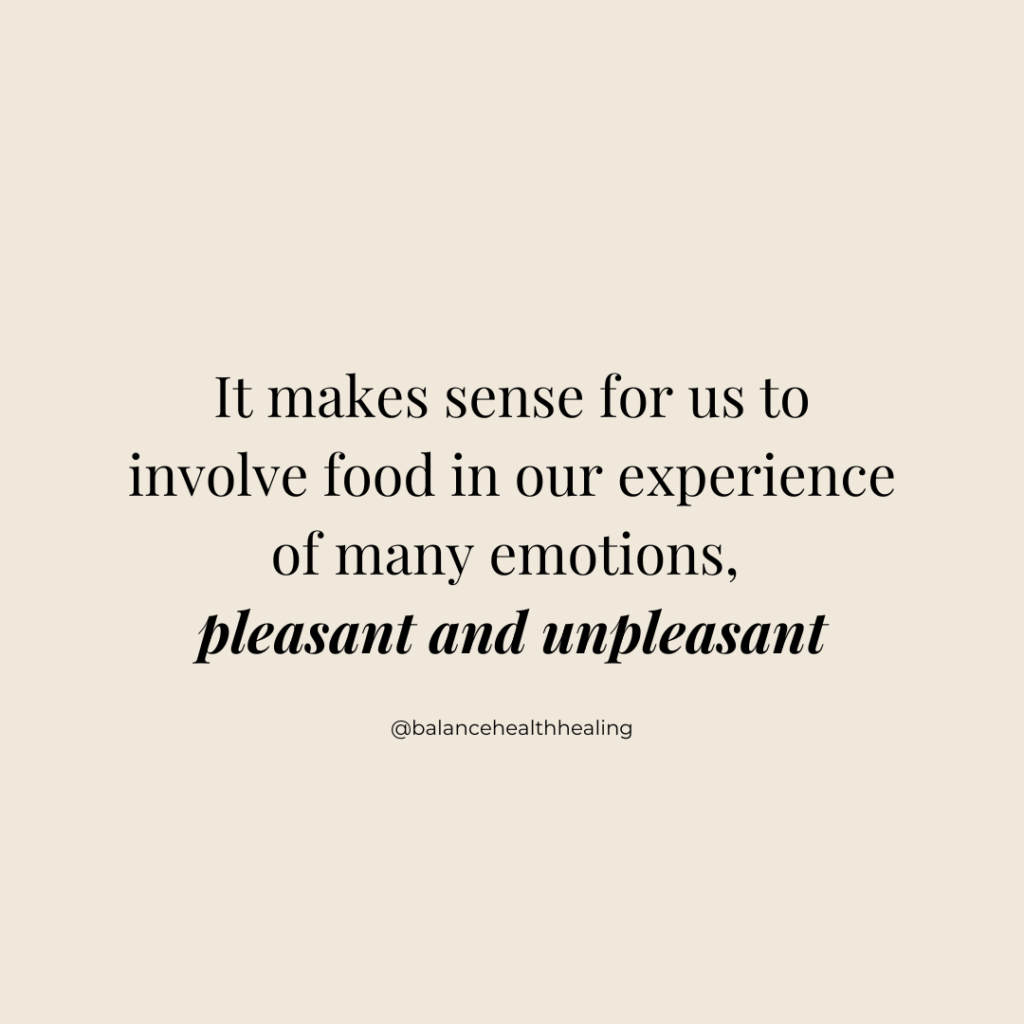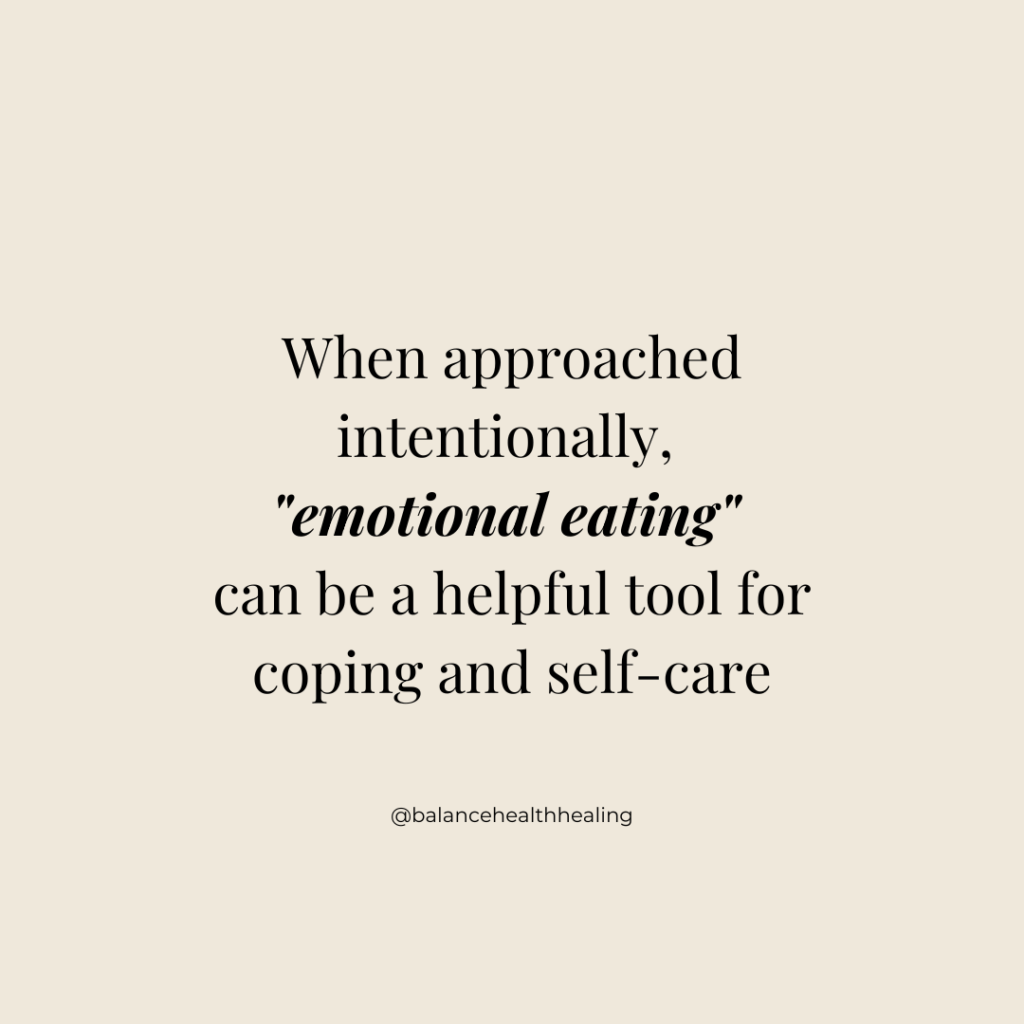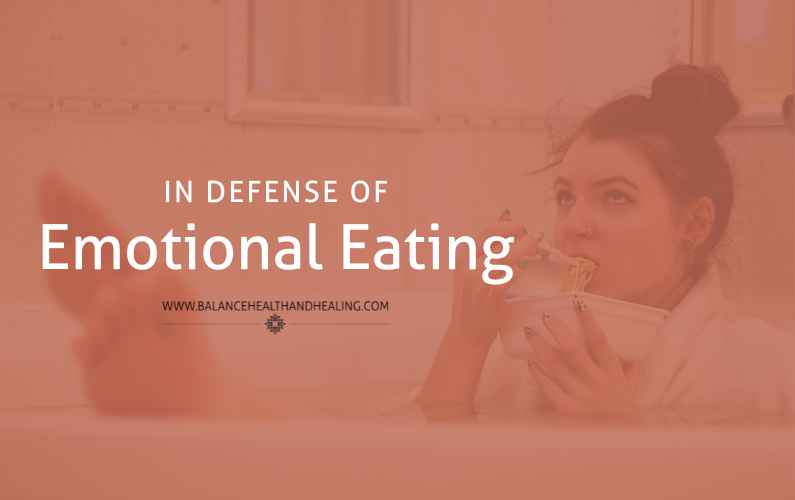The term “emotional eating” is often used with a negative connotation. Eating for emotional reasons, rather than to satisfy hunger, is usually talked about as something physically and emotionally unhealthy. Here’s my take: Emotional eating isn’t inherently unhealthy!
Of course, “emotional eating” can sometimes be an ineffective form of coping with emotions or distress. Avoiding emotions through eating can be part of an unhelpful cycle. (Then again, so can avoiding emotions through NOT eating!) However, it makes sense for us to involve food in our experience of many emotions, pleasant and unpleasant!
Eating out of celebration can connect us to our culture, to family and loved ones, and to sensory delight. For me, homemade cherry pie is a food I eat exclusively for emotional reasons! It’s tradition in the family I grew up in to have cherry pie on birthdays and other special occasions, usually AFTER a big meal of Taiwanese dumplings shared together. I’m almost never hungry by the time we get out the cherry pie, so I guess that means I’m always “emotionally eating” when I eat cherry pie. If that’s wrong, I don’t want to be right! The delicious experience of filling my belly with dumplings, then savoring tart cherries and flaky pie crust is a big part of what makes those special days significant. This type of emotional eating is precious to me because it has been a tradition in my family since I was a child.
Eating for nostalgia, to remember a person, a place, or a tradition, can be beautiful and meaningful. Whenever I eat a fresh peach, whether I’m physically hungry or not, I cannot help but find myself “emotionally eating.” To me, the smell of ripening peaches instantaneously takes my mind back to the kitchen of the home where I grew up. The taste of fresh peaches is the taste of decades of Labor Days spent laughing with my siblings. A bowl of cut-up peaches set on the table is a love note from my mom or dad. For me, peaches are often a part of “emotional eating” that I deem as healthy for myself and my relationships.
Eating because we are feeling stressed or sad makes sense, and can be a helpful choice. Eating can be soothing to our bodies. From the very moment we are born, we are meant to find soothing and safety through eating. Eating is supposed to feel good! When approached intentionally, “emotional eating” can be a helpful tool for coping and self-care. For me, sometimes crunching my way through a bowl of cereal (especially Honey Bunches of Oats with almonds. IYKYK.) is part of what helps me soothe myself enough to face the stresses of another couple of hours of parenting little kids. I see these moments of “emotional eating” as an effective way for me to sit with and work through stress so I can move on with my day.
Food is fuel for our bodies, and it is also so much more. Eating for emotional reasons can add variety, meaning, comfort, and connection to our lives. There needs to be no shame in “emotional eating.” Emotional eating is a normal part of the human experience, sometimes in helpful ways, and sometimes in unhelpful ways. Of course, if eating for emotional reasons has become part of a cycle that is not adding to your well-being, you deserve to have support and help with breaking that cycle, and with learning more effective ways to cope. And even then, eating for emotional reasons can still play a healthy, helpful role in your life. Making room for “emotional eating” is, in many ways, an essential element of having a peaceful relationship with food because eating and emotion can never fully be separated. Food and emotion are inherently intertwined, sometimes in painful ways, but also in beautiful and meaningful ways.

